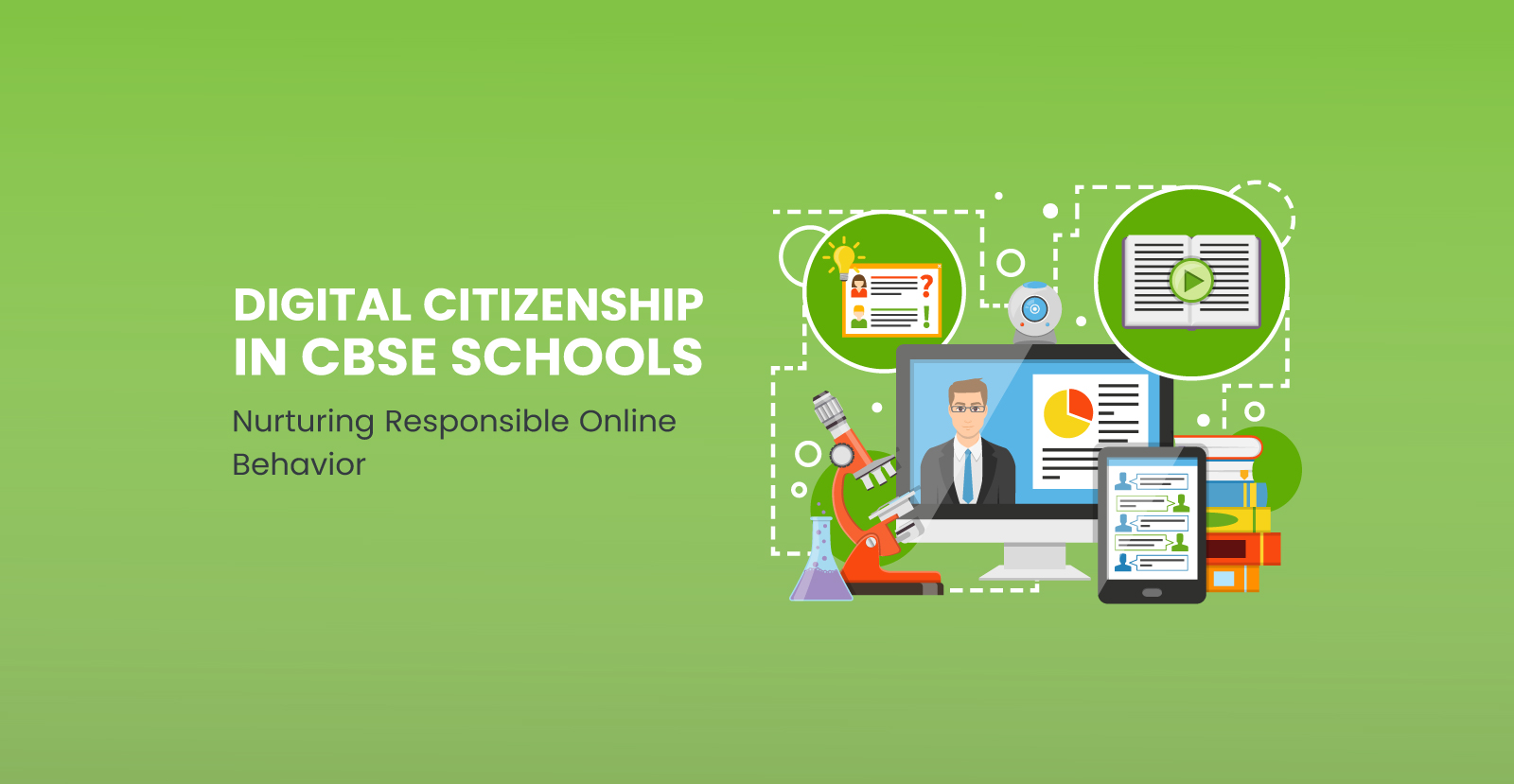
Digital Citizenship in CBSE Schools: Nurturing Responsible Online Behavior
As the digital landscape evolves, the integration of technology into educational environments is more pervasive, bringing both opportunities and challenges. Central Board of Secondary Education (CBSE) schools, renowned for their holistic approach to education, are increasingly focusing on nurturing responsible online behavior through digital citizenship programs. These initiatives are crucial in preparing students not only to thrive in a digital world but also to contribute positively to it.
Understanding Digital Citizenship
Digital citizenship encompasses the norms of appropriate and responsible behavior concerning technology use. It’s about understanding the rights, responsibilities, and opportunities of living, learning, and working in a digital society. CBSE schools are embedding these principles into their curriculum to ensure that students become conscientious digital citizens who engage positively in online communities.
Integrating Digital Literacy in the Curriculum
To equip students with necessary digital skills, CBSE schools are weaving digital literacy into various subjects. This approach ensures that students understand the practical implications of technology and the ethical dilemmas it can present. For example, English classes might include assignments that require students to critique how information is presented online, while science classes could discuss the implications of technology on environmental conservation.
To equip students with necessary digital skills, CBSE schools are weaving digital literacy into various subjects. This approach ensures that students understand the practical implications of technology and the ethical dilemmas it can present. For example, English classes might include assignments that require students to critique how information is presented online, while science classes could discuss the implications of technology on environmental conservation.
Promoting Safe Online Environments
The safety of students online is paramount. CBSE schools implement rigorous programs that teach students about cybersecurity, privacy, and the dangers of cyberbullying. Through interactive workshops and real-world scenarios, students learn to safeguard personal information and navigate online spaces safely. These lessons are crucial in preventing cyberbullying and ensuring students know how to seek help if they encounter online harassment.
Encouraging Ethical Online Interactions
Ethical behavior online is a cornerstone of digital citizenship. CBSE schools encourage students to consider the consequences of their digital actions. This is taught through various school activities that promote empathy, respect, and understanding. By engaging in discussions and role-plays, students learn the importance of maintaining a positive online presence and the impact of their digital footprint.
Ethical behavior online is a cornerstone of digital citizenship. CBSE schools encourage students to consider the consequences of their digital actions. This is taught through various school activities that promote empathy, respect, and understanding. By engaging in discussions and role-plays, students learn the importance of maintaining a positive online presence and the impact of their digital footprint.
Facilitating Parental Involvement
CBSE schools recognize the essential role parents play in reinforcing digital citizenship at home. Regular parent-teacher meetings and digital workshops help parents understand what their children are learning about digital citizenship. These sessions provide parents with strategies to supervise and guide their children’s online behavior, ensuring a unified approach between school and home.
Evaluating Media and Information
Critical thinking is vital when navigating the vast amount of information available online. CBSE schools emphasize media literacy, enabling students to evaluate the accuracy and bias of the information they encounter. This training helps students develop discernment in identifying reliable sources and understanding the potential agendas behind the information presented online.
Developing Communication Skills
In a digital world, communication extends beyond face-to-face interactions. CBSE schools focus on developing robust digital communication skills in students, ensuring they can express themselves clearly and respectfully online. This includes understanding the nuances of digital communication, such as tone and context, and how these can be misinterpreted in online environments.
Enhancing Collaboration Skills, Innovation and Creativity
The ability to collaborate effectively online is another critical aspect of digital citizenship. CBSE schools utilize technology to foster collaborative projects where students can work together across digital platforms. This experience is vital, preparing students for the globalized, interconnected world they will enter as adults.
Digital citizenship also involves using technology creatively and innovatively. CBSE schools encourage students to use digital tools to create content, solve problems, and build new things. This not only enhances their technical skills but also fosters a mindset of innovation and creativity, essential in the digital age.
Conclusion: A Comprehensive Approach to Digital Citizenship
By systematically integrating digital citizenship into their educational frameworks, CBSE schools are setting a standard for how educational institutions can prepare students for the complexities of the digital world. This approach not only addresses the practical skills needed to use technology effectively but also emphasizes the ethical, social, and psychological aspects of digital engagement.
Through dedicated programs and a commitment to holistic education, CBSE schools are cultivating a generation of informed, responsible, and conscientious digital citizens. This effort ensures that students are not only safe and effective in their use of digital tools but are also aware of the broader impacts of their online presence and activities. As we move further into the digital era, the importance of such education cannot be overstated—it is fundamental to the well-being and success of individuals and the broader society.



